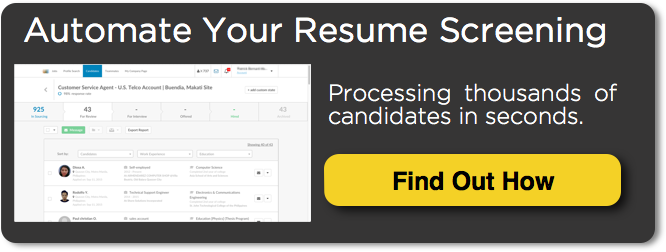People are the most important asset in an organization, and building a great team is one of a manager’s most important activities. But if this is so, why is it often relegated to HR? Here are five tips that will help managers master the hiring process and select the best candidates for their teams.
5 Hiring Tips for Managers
1. SET THE BAR HIGH
An opening on your team is an opportunity to bring in great talent. It is not just a burden that you add to your list of things to do—that kind of mindset will immediately put you at a disadvantage. You will be fixated on finding a person just to fill the role.
Setting the bar high means you establish a passing grade that applicants are graded against. This behavior sends all the right signals: your existing team will realize it’s not easy to get in, and applicants will see the company’s high standards when it comes to taking people on.
2. DON’T HIRE AN APPLICANT JUST BECAUSE YOU HAVE TO CHOOSE ONE
Do you know what sets great managers apart from average or poor managers? They do not settle for just anyone who applies.
Think about it.
When was the last time you asked yourself this question, “who among them do you like best?” or “who do you like better?”
Both questions are dangerous, show naivety, and demonstrate a lack of understanding of the significance of hiring new team members.
The questions assume a few things: (1) you already have the best applicants for the post, (2) you are not willing to measure against a standard, and (3) you will choose from anyone who applied, even if they do not meet your standards.
Managers should always measure candidates against the standard that has been set. If only one passed, then it’s okay to hire that person. If no one passes the standard, do not hire any of the applicants.
3. DON’T HIRE FOR POTENTIAL
One of the mistakes managers often make is looking at other skills the candidate has shown in the interview. Imagine this scenario: you are hiring for a sales role, specifically account management. Candidate 1 has the main skill you are looking for. You gave candidate 1 a grade of 9 in that core skill. Candidate 2 has the main skill and another skill that might be useful. You have that candidate a grade of 7 for the core skill but 9 for the auxiliary skill. Who would you choose to hire?
90% of managers would go for candidate 2. Why? Because the candidate has more potential that might be useful in the future.
Considering potential over the current skills already violates the first two tips mentioned in this article.

First, you are sacrificing the core skill because you are blinded by the auxiliary skill. This is okay if you graded them exactly the same on both the core skills. In that case, you will (obviously) want to get the applicant with more skills.
Next, you are choosing from a finite list that assumes you have the best candidates that have passed the standard. The interview process is a way for you to move from “I think” to “I know.” The interview process has to clear your doubts about yourself and the candidate.
Finally, the most important reason why you should not hire for potential is that you are hiring for a specific role with a specific skills requirement. If the person does not perform well in the role, how much likely do you think he will be able to demonstrate his potential in other areas? After spending a lot of time interviewing and allowing the person to fill the role poorly, you will be back to square one again.
4. DON’T WING IT—COME PREPARED
Preparedness in interviewing is not just having read the resume once or twice. It is also thinking through what you want and your measure of success. Being prepared for an interview also means you have thought through the questions you will be asking and what a good or bad answer is.
When you come in for the interview and you are not prepared, the candidate sees it. When you scramble for words to say or questions to ask, when you are just browsing through their resume in front of them, the candidates notice this. You cannot hide it from them.
If your company’s image embodies professionalism, then you just discredited it—you’re not prepared. Not only did you ruin your own image (“I wouldn’t want to work with this manager”), you also risk the company’s image (“If this manager works like this, what about the other managers?”).
Being prepared also mean you know what you are seeking. It means you know the interview questions to ask and what behaviors to look for.
5. HAVE A PROCESS FOR THE ENTIRE HIRING AND DECISION-MAKING
Human beings are creatures of habit. A habit is simply a combination of things you do at a given time, place, or circumstance in a given way or order. For example, your habit when you wake up is making your bed, taking a bath, eating breakfast, brushing your teeth, then heading to work. When you get home, you play with your dogs, watch TV, read a book, then go to sleep. You do that every day.
The reason for that is to eliminate unnecessary thinking for your brain. This allows you to focus your energy on the more important part instead of constantly thinking of what to do next. This is exactly what David Allen preaches in his best-selling book Getting Things Done.
Make sure you write down the specific questions you will be asking, and ask every candidate these questions the same way every time. Do not worry about sounding robotic because you will get varying answers and your follow-up questions will adapt accordingly.
Did you find them useful? Here are 5 more hiring tips for managers.


